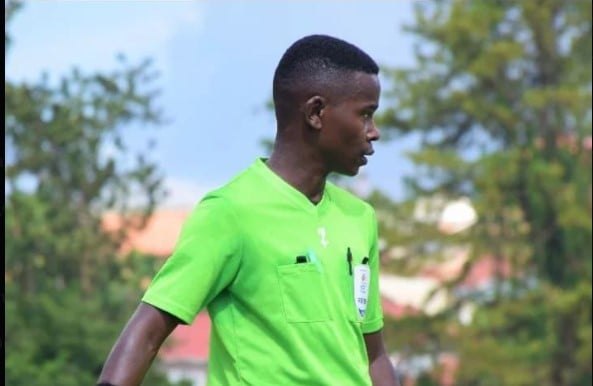Prime
IPOD: Is NRM dominance a bully to other parties?

Author: Nicholas Sengoba. PHOTO/FILE
Once again, the Inter Party Organisation for Dialogue (IPOD), an entity that brings all Ugandan political parties represented in Parliament together, had empty seats.
FDC, which is currently the largest Opposition party in Parliament and the Justice Forum, the smallest, stayed away.
Their grievance is that IPOD has become a mere talking shop whose resolutions are never taken seriously by the ruling NRM party.
IPOD, which was formed in 2010, is funded and facilitated by the Netherlands Institute for Multiparty Democracy Uganda (NIMD.) Good intentions it has, for whenever people gather and talk, it is better than when they don’t.
So why does IPOD always seem to have challenges in getting all the parties on one table let alone to talk?
Dialogue is better placed in an environment of mutual respect, a shared honest desire to reach out to one another and a reasonably even distribution of strength in terms of numbers and power for authority.
In such circumstances, one party is on shaky ground without the company of the other(s).
The biggest challenge to IPOD is the dominance of the ruling NRM party. For instance, currently in Parliament (from the results of the 2016 (as at February 16) election, the ruling NRM had about 298 MPs, the Independents (many of whom are NRM-leaning) were 66. FDC had 36, DP had 15 and UPC came in with 6. The UPDF had 7, whom the ruling NRM describes as their listening posts in the August House.
It is worth noting that with the ever increasing number of districts, the figures went up mainly favouring NRM.
From the figures above, the NRM has more than 70 per cent of the MPs. It goes even higher when you add those who lean with them plus the UPDF, who by default, vote for the government. You also have the odd turn-coat from the Opposition, who once in a while, will not tow the party line.
If a party is in such a situation in terms of numbers, it is self-sufficient in as far as votes to pass any law or resolution is concerned.
Considering that most of the time Parliament requires a two-thirds majority to carry the day, there is no way NRM would fail to pass any law because as we have seen, they start at more than 70 per cent.
As such, NRM does not need to reach out to Opposition political parties to help it achieve its goals. For all intents and purposes, the Opposition is in Parliament to simply make the numbers.
They will on very many occasions put matters in the headlines, which expose the abuse of power, corruption and bad governance. But in effect, the NRM always has its way. So when they have to sit on a round table, the NRM is more than the alpha male in the kraal and the Opposition parties know it.
Look at the US Congress, for instance. When the matter of the second impeachment of former president Donald Trump was put to vote, the House passed the article of impeachment on January 13, 2021, by a 232–197 vote. All 222 Democrats voted to impeach, joined by 10 Republicans (including House Republican Conference Chairwoman Liz Cheney).
Four Republicans did not vote, and the other 197 Republicans voted ‘No.’ (Internet).
Trump was not impeached because despite the Democrats having a majority, it is a slim one. It represents a country divided almost in the middle.
The Democrats would have needed another 60 Republicans to join them in order to impeach Trump.
In such an environment, none of the parties can afford to be aloof, arrogant and unilateral. There will always be a need to reach out, be civil and humble.
If the Ugandan Opposition in parliament knows these facts, why do they still participate? It is because there is pecuniary gain for anyone who comes to the table.
The MPs in Parliament get well paid and facilitated. Their presence there is not exactly useless. It helps to fathom the notion that you have a democracy with a ruling party and an Opposition to check and balance it.
The practice on the ground is another matter altogether. In the same vein, parties also get financed both by government and the donors so they must be seen to participate in a working democracy.
One wonders why the donors don’t take their money away from these groups of adults who refuse to sit and talk.
Well among other things, they also get the satisfaction out of facilitating IPOD. Besides expanding their own spheres of influence in the politics of Uganda, it projects them in the same good light as that of their forefathers and keeps the recipients forever grateful.
By fore fathers, we are talking of the ones who came to Africa in the 19th Century to help Christianize, civilize and commercialize the ‘backward’ rudimentary ways in which people transacted.
As long as we still have weak Opposition parties that are pitted against a party, which is fused with the State, one which leans on the coercive arm of the State to enforce its partisan wishes, dialogue will be for the cameras, complete with a good cup of African tea.
But not all is lost. In Kenya, KANU was once a behemoth between the 1960s and 1980s, but today, it is unknown in Parliament. So was UNIP in Zambia, which has now faded off the face of the political landscape.
Both NRM and the Opposition can take lessons from the great healer called time.
Twitter: @nsengoba




